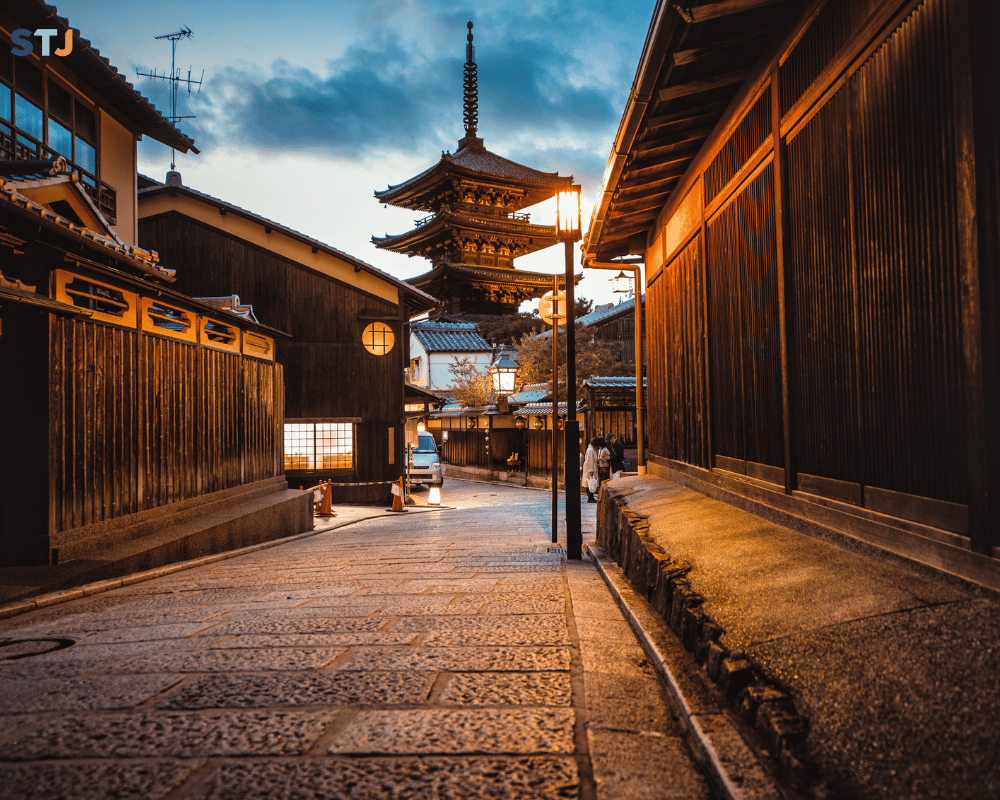By Benjamin Ouedraogo.
Some cities whisper, others sing — and then there is Kyoto, which remains silent.
September 2019. I walk alone down a narrow alleyway, lined with weathered wooden machiya. On my left, an ultramodern vending machine. On my right, a temple where a monk slowly sweeps the gravel. Kyoto is this improbable peace between the sacred and the digital, the high-tech and the timeless.

But that day, I was not just a tourist. I was an African traveler — and that changes everything.
In a country where I stand out by the color of my skin, my appearance, my language, I was at once highly visible… and strangely invisible. The glances were curious, sometimes cautious, never hostile.
One night, lost in the quiet maze of Kyoto’s streets, my phone out of battery, I wandered without bearings. Three teenagers noticed me and walked me all the way back to my hotel — thirty minutes on foot, in a quiet, shared solidarity. Their kindness
moved me deeply.
What struck me most in Kyoto was not a warm welcome or a disorienting beauty — it was respect. Respect for gestures, for places, for silence. And that kind of respect, I know intimately — it lives in my culture too.
That journey reminded me that respect is not always at the heart of tourism. Too often, travel becomes an act of consumption: we skim, we take, we post. But to travel is not to take — it is to receive. With humility.
This city taught me to slow down. To observe without commenting. To listen without interrupting. That lesson still guides me today, in my role as editor-in-chief. I bring a voice from elsewhere — a way of telling the world that doesn’t impose a gaze, but opens a space.
I believe in a decentered kind of travel journalism. Rooted in lived experience. Attuned to nuance. And deeply respectful of the cultures it encounters. In its silence and complexity, Kyoto offered me more than just a memory — it gave me a compass.
This article is part of the practical work carried out by the students of the Master’s in Travel Journalism.

